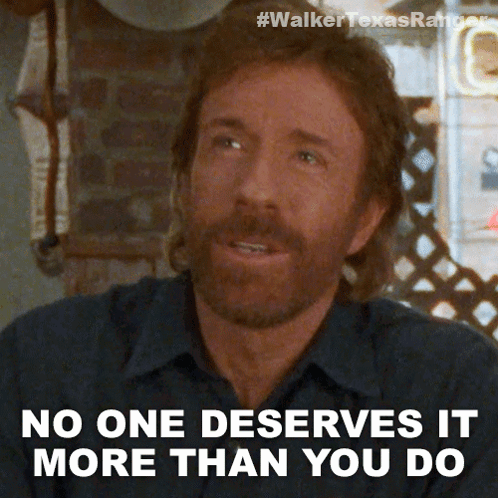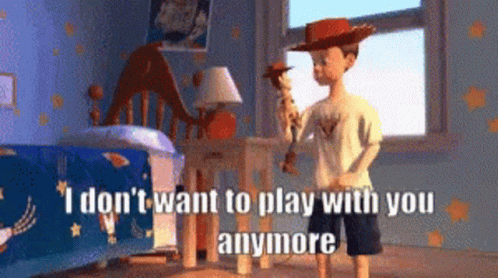Why It's So Hard To *Be* Grateful
We think we'll be grateful once we're happy, but in reality, we'll be happy once we're grateful.

Let's pretend that I invited you and another one of our friends to my place to give you gifts. After you both arrive, I call you over to me first and hand you a neatly wrapped box with a bright red bow on top. You unwrap your gift, open the box, and are immediately overcome with joy—delighted beyond words at what you find. This, you say, is one of the best gifts you've ever received. We embrace, and you thank me repeatedly before returning to your seat.
I then call our second friend up to hand them their gift. Immediately, you notice that their gift is significantly bigger than your own, but knowing that looks can be deceiving, you don't think too much of it and wait for them to unwrap the gift and reveal what's inside. Our second friend opens their bigger box, and upon seeing what's inside, your heart drops to your stomach. You discover that the second friend's gift is something you've wanted badly for yourself for a long time. You try your best to hide how you're feeling by plastering a smile on your face, but on the inside, you feel shattered into a million envious pieces. The joy and gratitude you felt toward me just moments ago has been replaced with anger and resentment for not giving you the gift you wanted the most.

Comparison is well-known as the thief of joy, but it’s also one of the greatest obstacles to gratitude. When we compare our gifts, or our lives, to the lives of others, we almost always find something others have that we want, which makes what we have seem less desirable and unworthy of gratitude.
Gratitude is much more than a fleeting feeling that fades soon after it’s triggered by getting something we want. Gratitude is a state of being, and if we can hold that vibration, getting what we want no longer becomes such a central focus. Instead, we transition into wanting everything we get. Happiness becomes incredibly difficult to sustain when we tell ourselves we can only be happy if a certain, ever-changing list of criteria is met. Being in a state of gratitude broadens our criteria for happiness, so the odds of finding happiness in any given circumstance increase significantly.
In today’s newsletter, I want to highlight a few other common blockages to gratitude in our daily lives and show how, by shifting our mindset, we can learn to be grateful even for things that we don't want, and in doing so, attract and sustain much more of what we do.
I Deserve!
Deserving is a very slippery slope. On one hand, it's very important to have a solid foundation of self-worth and self-love so we don't form a habit of accepting the bare minimum that people want to offer us. On the other hand, believing ourselves deserving of only 'the best things' in life becomes a bit of a trap in how if anything comes to us that we don't perceive to be the 'best', we reject it and in doing so, often reject a blessing in disguise.
Furthermore, anyone who truly believes they only deserve good things is either a saint who never does, thinks, or feels anything that harms another being—or they are delusional. Since we are all human, since we all err, since we all hurt others, whether intentionally or not, the belief that any of us deserves only good things is not grounded in reality. Rather, it's an expression of an ego in fear and denial of its own shadow. The entitlement born from the belief that we deserve certain things makes it difficult to feel gratitude for a life that doesn’t precisely match the one we think we should have. Instead, it often makes us bitter, resentful, and closed off to life, which, inadvertently, blocks our greatest desires rather than attracting them.

Not only is entitlement delusional, but it is also uncompassionate. Were the over 40,000 innocent casualties of the Israel-Hamas war not deserving of a good life? What about the hundreds of thousands of homeless people currently walking the streets of the U.S., who will have to find some way to stay warm in the coming winter months? Why do you or I deserve a more comfortable life, a bigger gift, or an easier, happier, more joyful existence than anyone else? Is it because we are 'good people'? Well, good people suffer every day. In fact, in my experience, the most grateful among us are usually those who have suffered the most, and through their suffering, they've discovered that nothing in life is guaranteed except death and decay. So receiving nearly anything outside of those two things is more than worthy of appreciation.
As highlighted by my imaginary friend in the introductory paragraph, entitlement makes it impossible to sustain a state of gratitude because entitlement depends on comparison. Entitlement, rooted in the ego, is insecure, which means it always feels that whatever one has is not good enough. It’s like posting something online and getting a million positive comments and one negative comment—most of us will focus on that negative comment because, within it, we feel a threat. Similarly, when we feel entitled, we could receive a million blessings, yet our focus will settle on the one blessing we didn’t get. Instead of feeling grateful for everything we have, we become bitter over what we perceive ourselves to lack.
Perhaps everything we get is exactly what we deserve. The concept of karma doesn’t resonate with everyone, but I’ve seen it play out in my life time and time again. When I decided back in 2015 that I wanted to be better—that I no longer wanted to hurt people haphazardly, that I no longer wanted to be led primarily by fear and lust, that instead I wanted to serve and spread love—I feel like the Universe responded, "Wonderful! But, you still gon' pay what you owe."

Despite doing my best to put only good into the world over the past ten years, I’ve still had to pay for every transgression I made toward others before that. I’ve learned that it’s possible to be grateful, even for things we don’t really want, as long as we can find meaning in them. So, even though I’ve often kicked, screamed, pouted, and protested at the karma I’ve received, I’m ultimately grateful for it because I know it’s what I deserve. I know that through facing my karma, and learning my lessons, I release myself from the chains of the past and allow myself to become more aligned with the present, and more capable of creating the future that I envision for myself.
I Didn't Ask For This
Life is hard, and you will never hear me try to convince someone otherwise. I will, however, try to convince others that life is beautiful, magical, mysterious, meaningful, and worth seeing through. But to say that life is easy is an unnecessary lie. At times, life beats us all up, and in those moments, it’s especially difficult to be grateful. Why would I be grateful for suffering? Why would I be grateful that I got fired from my job, that my mom got sick, that there’s war in my country, or that I don’t know how I’m going to pay my bills? Why would I be grateful for feeling alone, unloved, and unseen? Why would I feel grateful to be abandoned on a pale blue dot situated in a vast expanse of nothingness? How could I ever feel grateful for being a victim to a life I did not choose?

Well, you can’t. Imagine I walk up to you, hand you a newborn baby, and then take off running as fast as I can in the opposite direction. Would you feel grateful for the “gift” I just gave you? Maybe, if you’d been praying for a strange baby to land in your hands, but more than likely, you wouldn’t feel gratitude—instead, you’d feel burdened by the responsibility of something you didn’t ask for. Those of us who’ve often felt we didn’t ask for our lives know firsthand how impossible it is to feel grateful for an existence we don’t want to be responsible for. Instead, we feel victimhood, anger, frustration, and confusion at having to survive a life we didn’t choose.
This is a mindset I lived with for a very long time. Not only did I feel like a victim of what had transpired in my life, but I also felt like a victim of life itself. And my victimhood made it extremely difficult to feel grateful for anything. Gratitude simply couldn’t take root in a heart depleted by years of bitterness and resentment. Being a victim made me feel powerless, as if life was some sort of punishment that was happening to me instead of a blessing that was happening for me.

But grace helped me realize that gratitude isn't about accepting suffering as "good" or pretending hardship isn't painful. It’s about shifting from the mindset that life is about pleasure—always getting what we want and feeling good—to understanding that life is about growth. It’s about taking whatever we receive and alchemizing it within awareness to evolve into the highest versions of ourselves we can be. Once I saw life that way, I understood that even though my life and what happened in it wasn’t always my fault, it was always my responsibility. By taking responsibility for my life, I gained power over it and gratitude for it as an ongoing process of evolution and discovery, rather than as a means to an end.
Unconditional Appreciation
Our transactional relationships with ourselves, others, and life in general are another major blockage to being grateful. Much like conditional love, most people's understanding of gratitude is that we shouldn’t feel grateful without something to be grateful for. So, instead of existing in a state of gratitude, we exist in a state of anxiety, anticipating life rather than flowing with it, and only allowing ourselves to feel thankful when we receive something we’ve wished for.
Think about it: most of us, probably including you and me, were first taught to say “thank you” as a response to receiving something, rather than as an expression of general gratitude. As a result, the gratitude we experience is often fleeting and insubstantial, existing mostly on a surface level as something we’re supposed to express rather than something we truly feel. It’s kinda like a child opening gifts on Christmas Day: upon seeing that they received the toy they wanted so badly, they experience a real sense of appreciation for that gift—until it’s time to open the next one. The feeling of excitement shifts quickly, moving from one object to the next.

This relationship we’ve created between objects and gratitude has conditioned us to misinterpret the value of objects, which lies in the feeling they create within us—not in the objects themselves. If we can detach gratitude from objects, we’ll discover that it’s possible to enjoy the pleasant feeling of gratitude regardless of the things we do or do not receive.
Instead of allowing appreciation to sink deeply into our lives, we treat it as a momentary reaction—a brief spark tied to a specific event or object—then move on. Just as a child’s joy evaporates in the search for the next thrill, our gratitude fades as we continually look for the next thing to fulfill us. Rather than experiencing a lasting sense of fulfillment, we enter a cycle of wanting, satisfaction, and then emptiness. Too many people repeat this fruitless cycle for years and call it a “life,” convincing themselves they are pursuing happiness while, in reality, they are chasing it away.
We cannot have lasting happiness without lasting gratitude, because gratitude and happiness are essentially the same feeling: a secure contentment with oneself.
All you gotta do is say 'yes'

We think we’ll be grateful once we’re happy, but in reality, we’ll be happy once we’re grateful. Gratitude precedes happiness because it rewires our minds to focus on what we already have rather than on what we perceive as lacking. Focusing on the negative causes the negative to grow; focusing on the positive causes the positive to grow. That’s why gratitude is such a powerful agent for positive change in our lives.
Gratitude is being receptive to life in general. It is an open-hearted “yes”—not to every little thing life presents, but to life as a gift in and of itself. When we embrace life this way, gratitude becomes less about isolated moments and more about our entire approach to living. It’s the understanding that even in hard times, there’s something to be learned; even in loss, there’s something we can carry forward. Gratitude lets us find meaning in the imperfect, shifting our focus from seeking to being, from resisting to allowing, from pursuing to receiving.
So, instead of waiting for life to meet our terms and trying to fit it into a small gift box we’ve picked out, gratitude allows us to meet life on its own terms. In doing so, we unlock a happiness that doesn’t depend on circumstances but is unconditionally rooted in being present, open, and accepting of exactly what is.
What's going on with me?
I'm not the biggest fan of our political system or of government in general but I'm going to vote this week because I feel like it's a part of taking responsibility for the life I've incarnated in and a way to contribute to the change I want to see in the world. I have a prediction that this election isn't going to be nearly as close as we think. I know how things are appearing but I sense this undercurrent in the energy of the collective of 'not going back'. I honestly feel like it started back in 2020 with Covid and everything that it brought where our world and the majority of its inhabitants decided that things need to shift for greater good of all.
Despite the best efforts of the forces that would rather have us stuck, I think the time has come for radical change. Now, don't get me wrong, I don't think this radical change starts and ends with the President of the United States but what I do think is, having a woman be President of the most influential country on the planet will have reverberating effects worldwide. I, for one, would love to see a more feminine energy in the Presidency because I think it'll bring some much needed compassion that is often missing from the highest positions of leadership.
Whether Kamala wins or not, I don't think we should be afraid. Nor do I think the shift that I'm feeling is dependent upon her winning. I feel that this shift is not only inevitable, it is already underway, and whatever happens is exactly what's supposed to happen to carry us to the next level. I know this week will super stressful for a lot of people but it's the perfect opportunity to practice gratitude despite appearances and so long as we have breath, we should have hope that the future can always be more aligned with the type of world we want to live in and the clarity to make the best of the present, regardless.
With love,
Micheal Sinclair 💜
